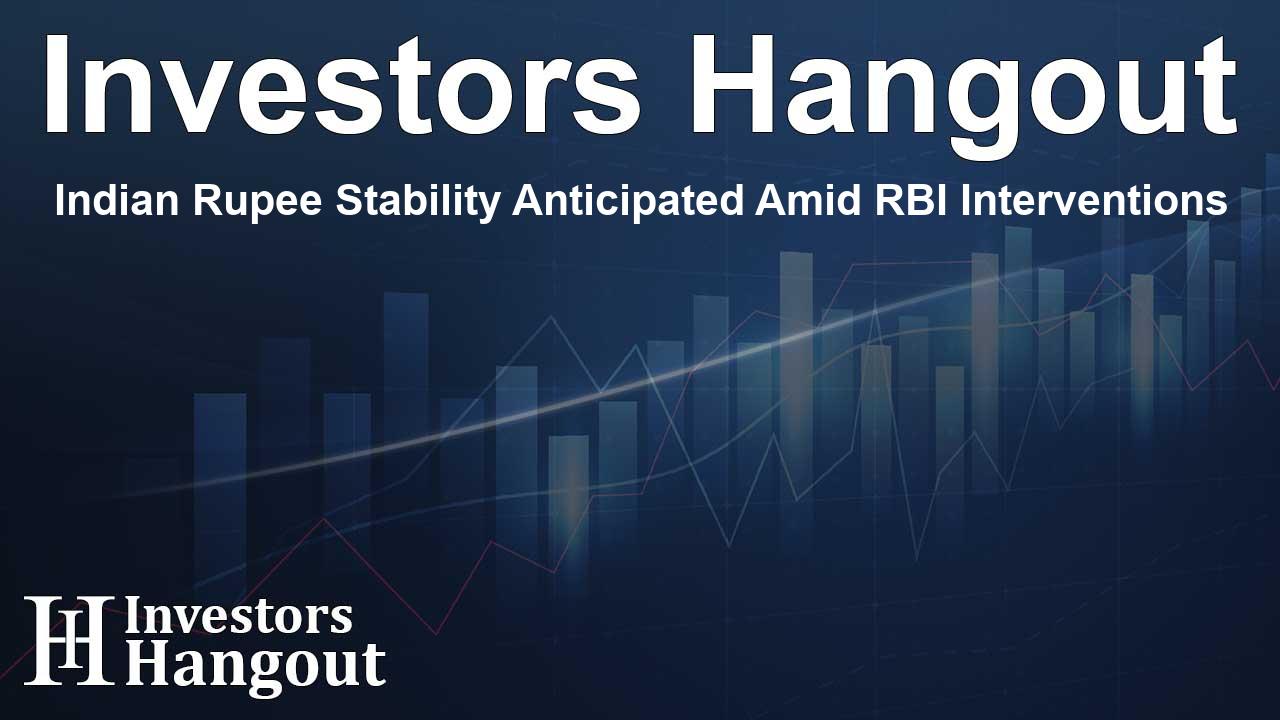Indian Rupee Stability Anticipated Amid RBI Interventions

Indian Rupee Forecast Amid RBI's Market Interventions
The Indian rupee is poised to stay within a narrow trading range compared to the U.S. dollar in the upcoming year, thanks to the Reserve Bank of India (RBI) actively participating in the foreign exchange market. This insight comes from a recent survey conducted among foreign exchange analysts.
Reasons for Stability in the Rupee
An important factor contributing to the relative stability of the rupee is the recent decline of over 2% of the dollar against other significant currencies in August. This easing of the dollar has offered some relief to various emerging markets, but the rupee fell to an all-time low of 83.97 against the dollar. Despite this, it has depreciated only by approximately 1% this year, maintaining a measure of stability.
RBI's Active Intervention
The RBI has implemented a strategic approach toward managing the currency exchange rates, with its foreign exchange reserves reaching $681.69 billion at the end of last month. This significant reserve indicates the central bank's commitment to buying dollars, especially amidst anticipated rate cuts by the U.S. Federal Reserve, which further influences the foreign exchange landscape.
Forward-Looking Projections
According to a poll conducted from August 2-4 involving 45 foreign exchange analysts, the rupee is expected to appreciate slightly from the current rate of 83.96 to approximately 83.75 by the end of November, potentially reaching 83.60 in six months and remaining stable for up to a year.
Market Dynamics and Expectations
Despite the dollar's recent downturn, the rupee has not strengthened significantly, which many analysts attribute to the constant presence of the RBI in the market. Dhiraj Nim, an economist at ANZ, highlights that the central bank has a successful formula that includes the dual strategy of buying and selling foreign exchange. This approach helps maintain the rupee within a controlled range, particularly around the critical 84 mark.
Addressing Overvaluation Concerns
Market analysts have remarked that the primary goal of the RBI's intervention is to align the rupee's value with its fair market worth. Currently, it is believed that the rupee is overvalued by approximately 7%. The RBI's latest monthly bulletin indicates that the trade-weighted real effective exchange rate of the rupee reached 107.33 in July. This status is the highest since December 2017 compared to its trading counterparts.
Long-Term Outlook for the Rupee
In a longer-term outlook, over 40% of the survey's participants anticipate the rupee might eventually reach a record low, indicating that while short-term stability might be feasible, challenges lie ahead for the currency to sustain its value. Suman Chowdhury, chief economist at Acuite Ratings, states that addressing the overvaluation issue is crucial for maintaining competitive exports and stabilizing the real effective exchange rate, which the RBI is closely monitoring.
Frequently Asked Questions
What is the main reason for the Indian rupee’s stability?
The Indian rupee's stability is largely due to the Reserve Bank of India's interventions, which help control its value against the U.S. dollar amidst external market fluctuations.
How has the RBI managed to stabilize the rupee?
The RBI has maintained high foreign exchange reserves and has actively engaged in buying and selling dollars in the market to prevent excessive volatility.
What are analysts predicting for the future value of the rupee?
Analysts expect the rupee could appreciate slightly in the coming months, potentially reaching around 83.60 against the dollar over the next year.
Why do some analysts believe the rupee is overvalued?
Analysts believe the rupee may be overvalued by at least 7%, making it crucial for the RBI to implement measures to bring it back to a fairer market value.
What is the significance of the rupee's recent trading levels?
The trading levels indicate the broader economic conditions facing the Indian market and highlight the RBI's ongoing efforts to support the currency while allowing for necessary market corrections.
About The Author
Contact Logan Wright privately here. Or send an email with ATTN: Logan Wright as the subject to contact@investorshangout.com.
About Investors Hangout
Investors Hangout is a leading online stock forum for financial discussion and learning, offering a wide range of free tools and resources. It draws in traders of all levels, who exchange market knowledge, investigate trading tactics, and keep an eye on industry developments in real time. Featuring financial articles, stock message boards, quotes, charts, company profiles, and live news updates. Through cooperative learning and a wealth of informational resources, it helps users from novices creating their first portfolios to experts honing their techniques. Join Investors Hangout today: https://investorshangout.com/
The content of this article is based on factual, publicly available information and does not represent legal, financial, or investment advice. Investors Hangout does not offer financial advice, and the author is not a licensed financial advisor. Consult a qualified advisor before making any financial or investment decisions based on this article. This article should not be considered advice to purchase, sell, or hold any securities or other investments. If any of the material provided here is inaccurate, please contact us for corrections.
